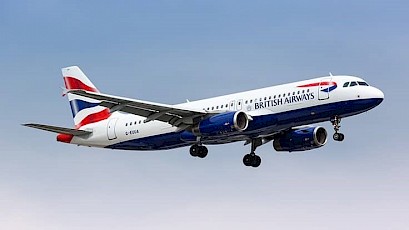British Airways commits to flights ‘partially fueled’ by RNG by 2022
 British Airways (BA) says it will operate transatlantic flights partially powered by renewable natural gas as early as next year.
British Airways (BA) says it will operate transatlantic flights partially powered by renewable natural gas as early as next year.
According to The Guardian, BA will invest in a new U.S. plant to be built in Georgia by LanzaJet “producing commercial-scale volumes of sustainable aviation fuel (SAF), made from ethanol derived from agricultural and other waste”.
The deal is the culmination of years of research and development work between LanzaJet’s parent company, LanzaTech, and the U.K. Department of Energy’s Pacific Northwest National Laboratory, TechCruch reports.
The airline said the fuel would create 70 percent fewer carbon emissions than conventional jet fuel. However, the report said it is likely to only provide a tiny fraction of BA’s overall fuel needs at first.
SAF can be used to substitute for up to 50 percent of conventional jet fuel but so far demonstration flights—such as one conducted in 2018 by Virgin Atlantic with LanzaTech (from which LanzaJet was spun off)—have blended only about 5 percent of the greener fuel.
BA owner, IAG, which has pledged to invest almost £300 million ($414 million) in SAF as part of its bid to reduce carbon emissions by 2050, said it would investigate building a refinery with LanzaTech in the U.K., as well as a waste-to-fuel plant in partnership with Velocys.
The Guardian reports the news came as the Dutch airline KLM claimed a world-first in using sustainable synthetic kerosene on a commercial flight from Amsterdam to Madrid. The Netherlands-based oil company Shell made 500 liters—just over 5 percent of the flight’s overall fuel burn—synthesized from carbon dioxide (CO2) and water using renewable energy sources.
“The transition from fossil fuel to sustainable alternatives is one of the largest challenges in aviation,” said Pieter Elbers, chief executive of KLM. “Fleet renewal contributed significantly to the reduction of CO2 emissions, but the upscaling of production and the use of sustainable aviation fuel will make the biggest difference for the current generation of aircraft.”
BA said it expects the LanzaJet fuel to “be available to power a number of its flights by the end of 2022,” said the company’s chief executive Sean Doyle.
“Following the successful startup of the Georgia plant, we hope to then deploy the technology and SAF production capacity in the UK.”
You can return to the main Market News page, or press the Back button on your browser.

